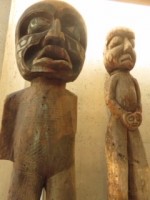“The human species is fantastically complex and often doesn’t know what it is doing. The search for a better understanding of our behavior is vital. It’s also difficult, never-ending and still very much worth the struggle.”
Those are the last sentences of a review in the New York Times Book Review by David Leonhardt of Michael Lewis’s new book, “The Undoing Project.” I love these sentences, they resonate with truth about the human condition and provide a good description about the psychotherapeutic process (both psychotherapy and psychoanalysis). We humans are very complex creatures. I don’t think we have to devalue the complexity of other species in order to appreciate our own. Our complexity is multifaceted, contributed to in no small way by the fact that there is this thing (process?) called the unconscious, that vast area of human motivation, thought and belief that is by its definition unknown to us. We react to people as if they were people in our past. We say things that we do not mean. Sometimes we even do things that are detrimental to ourselves. Why? The search to understand ourselves, not just our behavior, but our thoughts, our beliefs and motivations, is vital to living a full life. This is especially true in this uncertain and dismaying political time when so much that is happening defies rational sense. It is essential to understand ourselves, although, as the writer notes, the search is difficult and never-ending.
That is where psychotherapy and psychoanalysis enter. That is what we, client and therapist, are up to: trying to understand ourselves (mostly the client, but at times the therapist, and at times understanding the two of us). Of course, people come to therapy looking for change; there is something missing in their lives, they don’t feel satisfied or fulfilled, or they are caught in destructive patterns. No change is possible without understanding. And, yes, it is difficult work. In this process, one encounters unexpected and perhaps long-forgotten painful experiences. One also encounters aspects of oneself that are difficult to recognize and accept. It is a difficult process, but what makes it possible is the development of a close bond with another human being. Many people enter therapy having had childhoods when being dependent was not a good thing and led to painful, sometimes traumatic, experiences. Given our culture’s emphasis on autonomy, on being able to “handle things” oneself, this bond can be challenging to develop. Ultimately, however, I believe it is this relationship, the trust and intimacy that develop, that makes for real learning and change to occur.
Michael Lewis’s book explores the work and friendship of Amos Tversky and Daniel Kahneman, researchers whose work “revealed previously undiscovered patterns of human irrationality: the ways that our minds consistently fool us and the steps we can take, at least some of the time, to avoid being fooled.” Using language I’m familiar with, I’d say their work looked at patterns that exist even when a particular pattern is not visible nor makes rational sense. Their work looked at the unconscious, the area that my clients and I explore. Exploration that makes for fascinating discoveries.


Comments are closed.